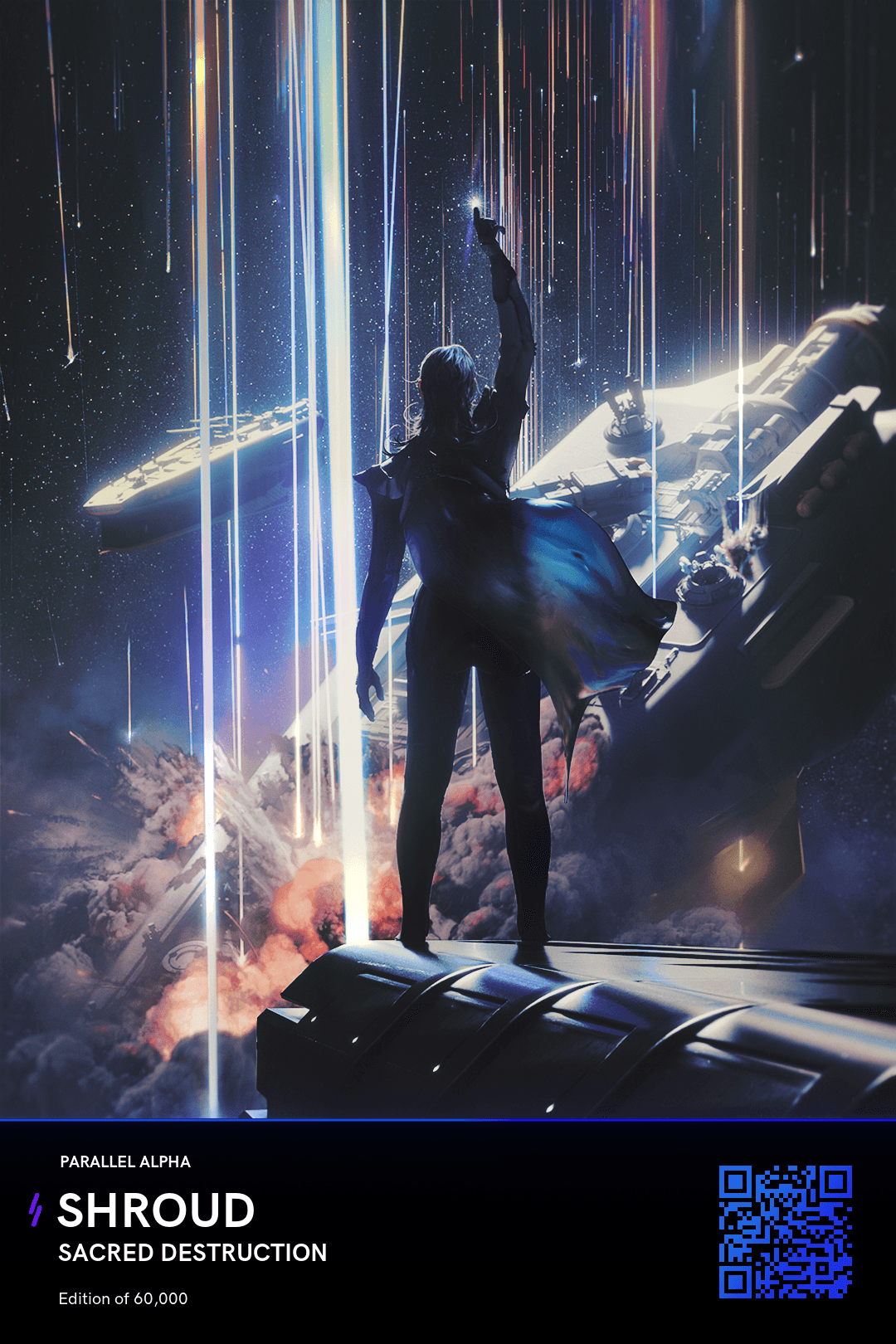
Non-Fungible Tokens (NFTs): What They Are and Why They Matter

Key Takeaways
- NFTs are unique digital assets stored on a blockchain that certify a digital object to be unique or 'non-fungible.'
- NFTs are primarily used for digital art or access tokens, but their use cases expand to include virtual real estate, gaming assets, music, fashion, and more.
- NFTs can provide artists and creators with more control over their work and a new source of income.
- The NFT space is still new, presenting challenges such as the potential for scams, and copyright issues.
Non-fungible tokens (NFTs) have emerged as a transformative force in the Web3 industry. They're at the frontier of the digital revolution, driving new avenues for creativity and reshaping the concept of ownership in the digital landscape. This article provides a detailed overview of NFTs, their uses, and how they're poised to revolutionize digital ownership and the art world.
Understanding Non-Fungible Tokens (NFTs)
To fully grasp the concept of Non-Fungible Tokens (NFTs), we need to first understand the term 'fungibility.' In economics, a good or asset's fungibility indicates its interchangeability with another good or asset of the same type. Traditional currencies, for example, are fungible. If you lend a $10 note to a friend, it wouldn't matter if they didn't return the exact same note; any $10 note would suffice.
However, NFTs are non-fungible, meaning each token has a unique value and specific information that cannot be replaced with something else. An NFT is a type of digital asset that represents ownership or proof of authenticity of a unique item or piece of content, stored on a blockchain, the same technology underlying cryptocurrencies like Bitcoin and Ethereum. Unlike these cryptocurrencies, which are fungible and can be exchanged on a like-for-like basis, NFTs are unique. This uniqueness and the ability to prove ownership make NFTs particularly suitable for a variety of use cases, including verifying the authenticity of physical goods, forming a digital identity, and providing unique access to something to a person or set of people.

NFTs are essential to the future of verifying the authenticity of physical goods
One of the crucial aspects of NFTs is that they contain distinguishing information recorded in their smart contracts. This information, often referred to as metadata, can include the identity of the owner, the history of the token's ownership, the asset's unique attributes, and more. This information makes it possible to differentiate one NFT from another and to verify their ownership, thus certifying the NFT's uniqueness.
The Impact of NFTs on the Art World
Art has been one of the most affected sectors by the advent of NFTs. This new way of tokenizing artwork into digital assets has opened up unprecedented possibilities for artists and collectors alike.




NFT artwork minted on the Tezos (XTZ) blockchain
Ownership and Provenance
Provenance, the record of ownership of a work of art, is arguably the most significant aspect of art sales and ownership. NFTs have revolutionized this by storing detailed provenance information within their smart contracts, allowing for clear ownership records and authenticity verification. This feature is highly beneficial in an industry often plagued by forgery and disputes over ownership.
Royalties for Artists
In traditional art markets, artists often receive a one-time payment for their work, after which they no longer benefit financially from further sales. NFTs change this dynamic. The smart contracts of NFTs can include terms that ensure artists receive royalties every time their work is resold, providing them with ongoing revenue.
Despite royalties being incredibly attractive to artists and businesses looking for new ways to monetize products, they've been a heated source of debate across the NFT community. As NFT marketplaces competed for dominance between 2021 and the beginning of 2024, a simultaneous rise in NFT trading occurred, with traders seeking the lowest marketplace fees possible to maximize profits.
Unpopular opinion: marketplaces forcing creator royalties is not it in 2023
— KBB (@KingBlackBored) November 4, 2023
Look we already did this dance in 2022 n forced royalties lost, can't put this genie back in the bottle
Instead NFT collections should focus on giving people a reason to voluntarily pay them royalties pic.twitter.com/g0cH30dAMI
Marketplaces catering to traders caused a race to the trading fees bottom that saw NFT marketplaces no longer honoring royalties. The exchanges chose user acquisition over creator protection, and as a result, artists and projects across the industry struggled with the loss of royalty revenue.
The industry continues to grapple with this subject.
Accessibility and Inclusion
Perhaps the most democratically potent feature of NFTs is their ability to democratize the art industry. By offering a global, open platform that is accessible to anyone with an internet connection, NFTs have enabled artists who previously had no access to galleries or traditional art marketplaces to sell their art directly to anyone worldwide. This inclusivity extends to art investors and enthusiasts, who can now participate in the art market without substantial wealth.
Beyond Art: Other Use Cases of NFTs
While digital art has been at the forefront of the NFT revolution, the potential applications of NFTs go far beyond, serving as access passes to a wide variety of utilities.
Virtual Real Estate
In virtual worlds like Wilder World or The Sandbox, land parcels are sold as NFTs. These purchases give the buyer ownership rights within the virtual space, which they can develop just like physical land. These virtual plots can be used to create homes, businesses, and a range of other installations.

Collectibles
CryptoPunks represent one of the earliest uses of NFTs. These collectibles can be bought, sold, or traded like physical collectibles. The project gained significant media attention with sales reaching millions of dollars, bringing NFTs into the spotlight.

Newer NFT collectibles sometimes offer holders various benefits for ownership. LALA, a startup backed by Reddit founder Alexis Ohanian, is bringing NFT collectibles to the film world. The project's first launch, a collaboration with The Wolf of Wall Street, launched collectibles that enabled owners to receive a % of the film's royalty revenue each year, among other benefits.

Gaming Assets
Conventional gaming frameworks typically limit the player's ability to possess in-game assets, such as items, characters, or virtual properties. On the other hand, blockchain-based gaming utilizes NFTs, offering genuine ownership of these digital assets.

In blockchain gaming, NFTs are central, facilitating the development of distinct in-game assets that are truly owned by players. These assets, which may include exclusive collectibles or virtual gear like weapons and armor, hold the potential for future transfer between games thanks to emerging NFT interoperability. Additionally, these items can be exchanged and sold in open marketplaces, fostering a robust community of collectors and traders.
Music
Artists and bands are issuing their work as NFTs in the music industry. These music NFTs are providing a new revenue stream and a more direct connection with their fans. They can represent digital album art, exclusive video content, or even tokenized album releases.
In February of 2023, startup AnotherBlock launched NFTs that enable holders to earn a percentage of royalties from Rihanna's smash hit song "Bitch better have my money."
Domain Names and Social Media Handles
As our lives become increasingly digital, online property has become more valuable. Digital property like domain names or unique social media handles can also be tokenized as NFTs, granting the owner certain rights.
The Internet of Value:
— 0://wilder.n3o ネオ (@real_n3o) November 1, 2023
What we are building with ZNS is more than a naming system, from my perspective it is a value-layer for the Internet, or 'Internet of Value'.
The notion that you can connect any existing website or internet service (via a ZNS resolver), to a unique,…
Fashion
The world of fashion is also exploring NFTs, with virtual clothing and accessories for avatars in video games or virtual worlds being sold as NFTs. Some brands are even launching digital-first clothing lines, a nod to the growing influence of virtual identities.
A digital helmet from Cultivate, a metaverse-centric lifestyle brand and tech innovation company
Charting the Future of Digital Ownership
NFTs are pioneering a new paradigm of digital ownership and creativity. Their impact on the art world has been significant, providing artists with new ways to monetize their work and connect with their audience. Beyond art, NFTs have found applications in diverse fields, pushing the boundaries of what we perceive as valuable in the digital world.
However, the NFT space is still in its early stages and comes with its own set of challenges. As the technology evolves and matures, so too will our understanding of NFTs and their place in our digital future.
Join Triana
Enjoy the article? Make sure to subscribe to stay up to date on our latest stories. If this is your first Triana experience, head over to our about page to learn more about the content we publish every week. Follow us on Twitter and LinkedIn to become a part of our community and join in on the conversations!

The views and opinions expressed here are for entertainment purposes only and should, in no way, be interpreted as financial or investment advice. Always conduct your own research when making an investment or trading decision, as each such move involves risk. The team members behind Triana are not financial advisors and do not claim to be qualified to convey information or advice that a registered financial advisor would convey to clients as guidance. Nothing contained in this e-mail/article constitutes, or shall be construed as, an offering of financial instruments, investment advice, or recommendations of an investment strategy. If you are seeking financial advice, find a professional who is right for you.

















